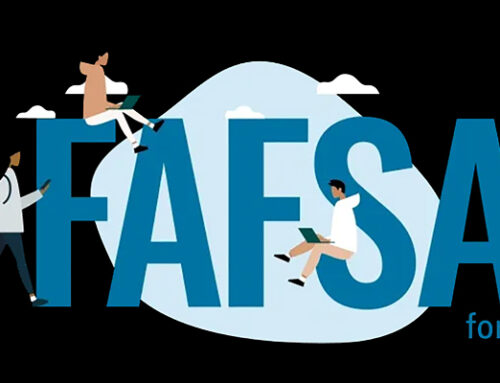 In college applications, many students agonize over what major to pick and list in their profile. They worry about whether they’ll be trapped in a field of study that they’re not sure they will like. Or that they’re compelled to select a major under pressure or influence from their parents.
In college applications, many students agonize over what major to pick and list in their profile. They worry about whether they’ll be trapped in a field of study that they’re not sure they will like. Or that they’re compelled to select a major under pressure or influence from their parents.
“Why do you want to study that? It’s hard to get a job with that degree.”
Much of this perception may come from families coming from countries where there is little flexibility for switching fields of study – you’re pretty much stuck until graduation. However, for undergraduate studies in the United States, there is much more flexibility. You are not defined by your major. We can look at this in three stages – 1) when you’re applying to college and 2) when you are enrolled in the university and 3) after you’ve gotten your degree.
When you’re applying:
It is a good thing to apply to a college with a goal in mind – something that demonstrates that you know yourself well, and something fits your profile in terms of academics, extracurricular activities, and general interest. If it’s advantageous for you to apply as an intended life sciences major because you’ve attended COSMOS, entered several science fair competitions, and volunteered at the hospital, by all means, do it. You aren’t obligated to commit to this once you’re enrolled, and you can change your mind later. However, if you are trying to game the system by applying to a “less competitive” major, and then switching to a very popular major with selective admit rates (e.g. CMU’s Computer Science), be aware that some schools may make this very difficult. Check with your consultant in college admissions counseling (i.e. me) for details on specific schools.
Once you’re enrolled:
In most undergraduate programs, you will be admitted to a certain division, such as College of Letters & Science, or College of Arts and Sciences, or College of Engineering. In most cases, you are not formally “locked in” a major until you have fulfilled lower division prerequisites and will then formally declare a major, usually by the end of your 2nd year of college. This is actually a good thing because this allows you to explore and try out different classes early on. You can also discover if you are really cut out for a course of study after taking some general lower division courses. For example, if you thought you were going to do a pre-med program but found general chemistry extremely difficult, you may want to change plans. Or if you took a political science course from a professor and just loved it – you might want to consider that field.
After you’re graduated:
Your bachelor’s degree is really a beginning rather than an end objective – you are life long learners. The overall objective of an undergraduate education is less vocational training (means to get you a job) and more on learning universal skills such that you can adapt to a changing world. In other words – how to critically think, how to express your ideas, and how to collaborate with others. This will prepare you to change professions and career directions over the long term. In fact, it is common for people to change their careers several times over their working life. Nor is it unusual for people to pursue a career or profession that is unrelated to their field of study. My mother had a masters degree in psychology but never entered the profession; instead, she taught herself programming and was a IT systems analyst for over 30 years.
So students and families, your (intended) major is not your destiny. It’s just the beginning of your lifelong journey into a fulfilling life and to ready yourself to go into future fields not yet developed. Treat this as an adventure with more to come.




